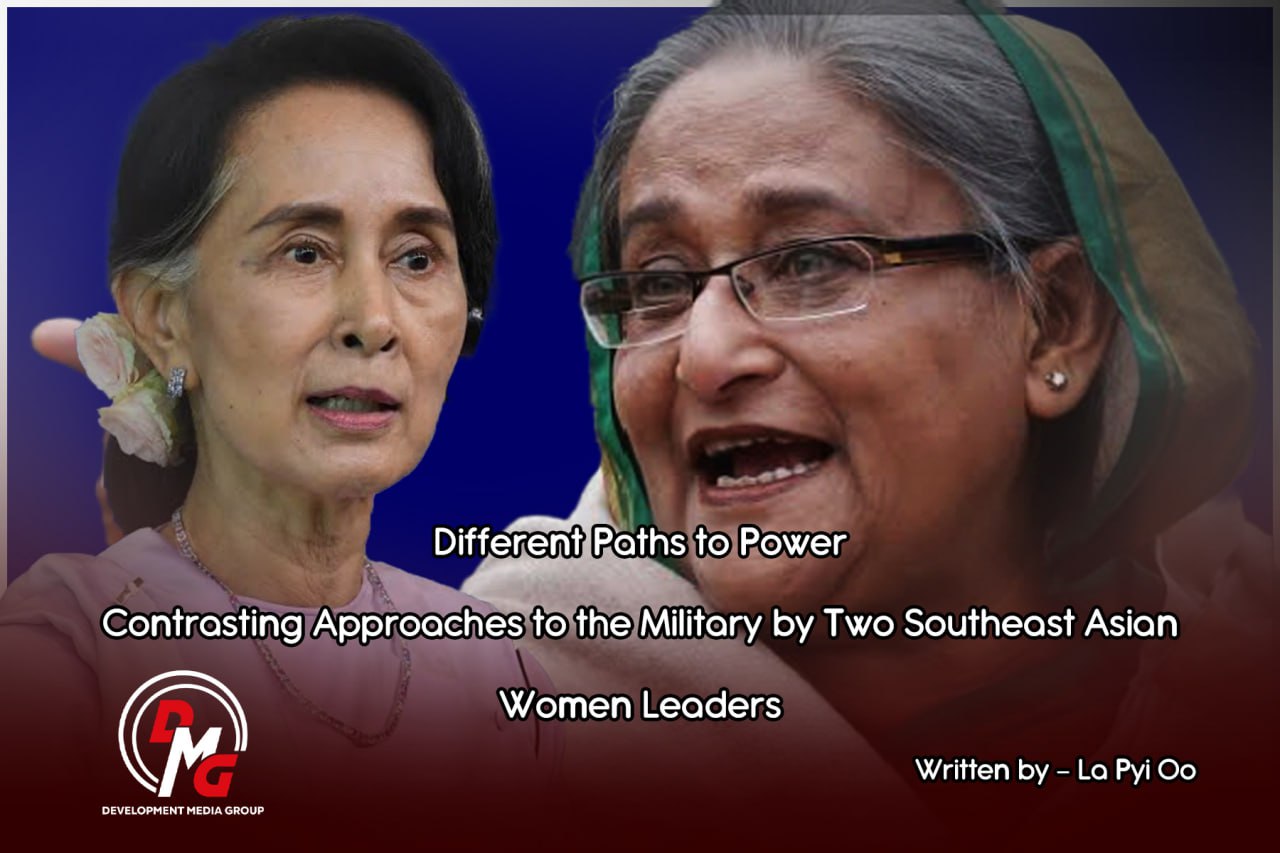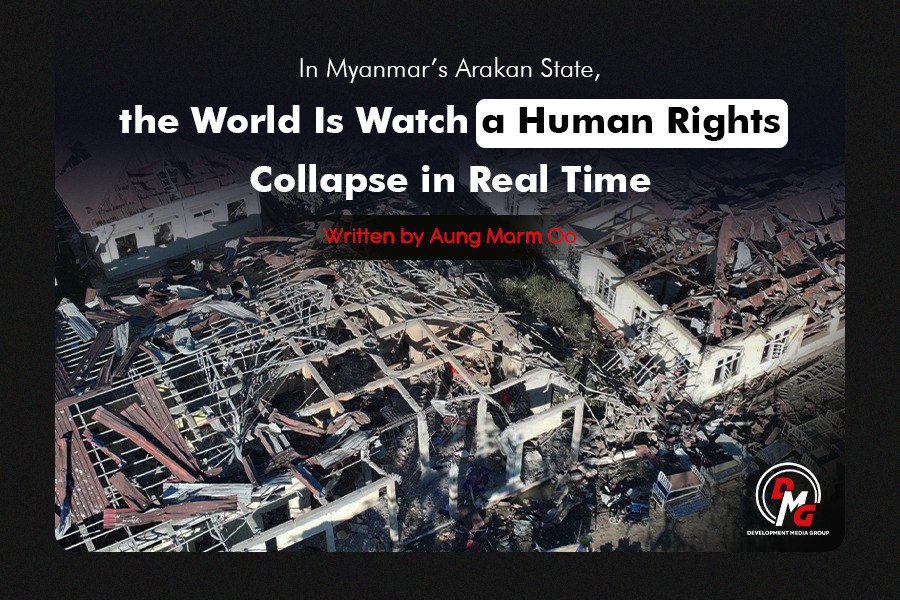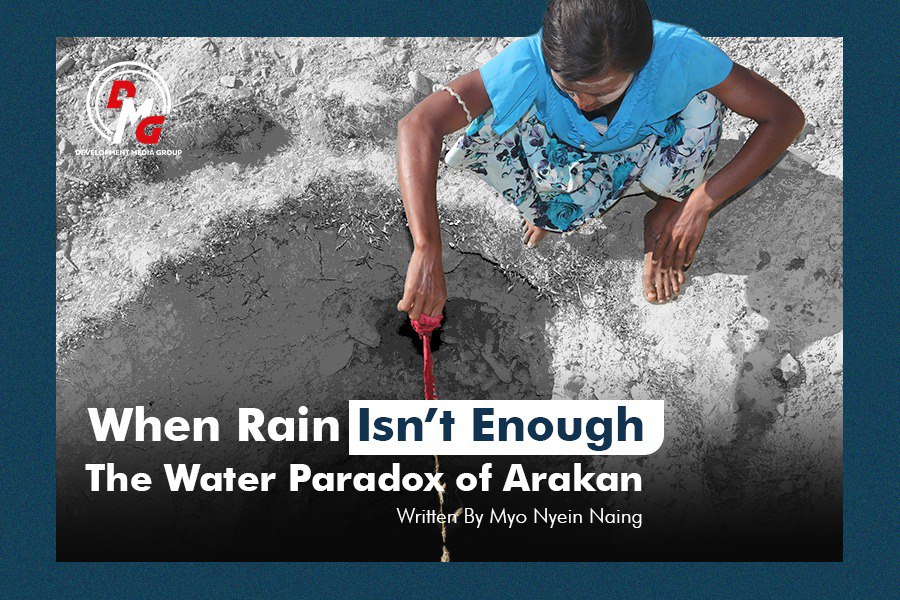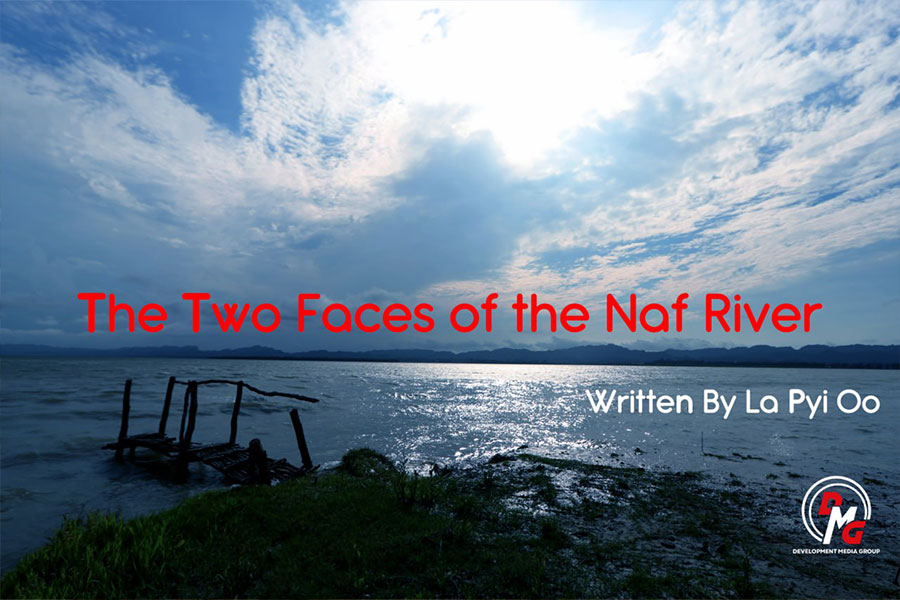- Junta unable to hold elections in dozens of wards and village-tracts in Sittwe, Kyaukphyu
- Fighting escalates between Myanmar military, Arakan Army in Ayeyarwady Region
- Regime steps up civilian arrests in Sittwe
- ULA safeguards Mrauk-U's ancient heritage
- Arakan on the Edge: What the DMG Landmine Impact Report Reveals About Myanmar's Deepening Humanitarian Crisis
Veteran Arakanese politician U Pe Than talks life after party politics
Veteran politician U Pe Than, who resigned from the senior ranks of the Arakan National Party (ANP) last year, recently talked to DMG about the current political landscape.
23 May 2022
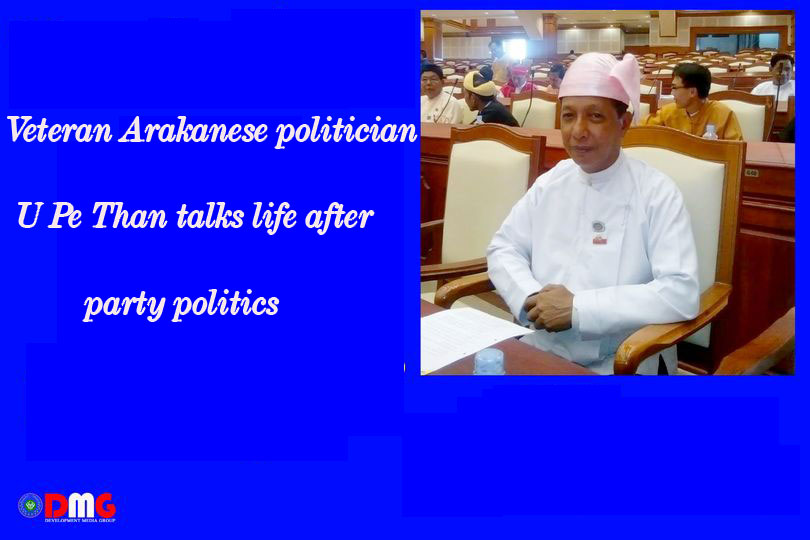
As the Arakan Army (AA) has grown in popularity and prominence in Arakan State over recent years, political observers have posited that its rising profile may have come at the expense of Arakanese political parties’ standing among the public. This notion has gained added currency in the aftermath of the military coup on February 1, 2021, which effectively suspended Myanmar’s democratic reformation for an indeterminate period.
Veteran politician U Pe Than, who resigned from the senior ranks of the Arakan National Party (ANP) last year, recently talked to DMG about the current political landscape.
DMG: Why did you resign from the ANP?
U Pe Than: I have other tasks to do for nationalism, which is more important than the party. Party politics is dead now. I resigned because I want to work for national interests, which are more important than party politics.
DMG: When you say ‘party politics is dead,’ what do you mean?
UPT: Party politics take place under the 2008 Constitution. From the very beginning, all of the questions and proposals made by the party [ANP] were ignored and voted down. And none of the questions and proposals approved was implemented. There is no parliament or party politics after the coup. And people are not interested much in party politics. People have no interest in party politics because of the coup, so I say party politics is dead.
DMG: Why has public support for party politics declined in Arakan State?
UPT: Previously, people supported the Rakhine Nationalities Development Party and the Arakan National Party. Later, young people have become more enthusiastic about the revolution of the United League of Arakan/Arakan Army (ULA/AA) than party politics. Party politics has limits. What we want is broader than that. The rights we can enjoy are very limited compared to our ambition.
Young people have become more interested in liberty and restoration of Arakanese sovereignty. They no longer want to rely on parties operating under the 2008 Constitution. We can’t push for our goals by raising questions and submitting proposals [in parliament]. When ULA/AA emerged, people chose armed revolution.
What’s more, party politics is not performing now due to the military coup. So, young people have less interest in party politics. They’ve become totally convinced that armed struggle is the only way for them to achieve what they want. People had interest in party politics only for a while during the elections, but public interest in it has declined gradually since then.
Some people hold the view that lawmakers only take care of themselves and ignore the voters after receiving the votes they need. But it is not the only reason [for voter apathy]. The ULA/AA is another reason. That’s why their interest in party politics has declined and they have become more enthusiastic about taking up arms.
DMG: Do you think right now we’re seeing the downfall of Arakanese parties?
UPT: People have no interest in party and parliamentary politics at all now, either in Arakan State or elsewhere in the country. The military council did not scrap the 2008 Constitution, saying that its takeover was in line with the Constitution. The 2008 Constitution only granted a few rights over the past 10 years of parliamentary democracy, and it cannot pave the way for our hopes. When there was no other choice, people engaged in party politics. People supported Arakanese parties believing that they would at least have a say, gather under the party flag, and raise issues at the parliament. Subsequently, only the ULA/AA could rock the hearts of people like an earthquake.
Revolution is a tough path filled with daunting challenges. However, people have started to fall in love with this path, and more and more people are choosing it. As a people who have lost their sovereignty, the emergence of the ULA/AA fueled the belief that liberty is the only way to regain sovereignty, to have self-rule, to have access to resources produced in one’s own territory, and to be freed from the yoke of others.
It is not the case that party politics is hopeless. But there is a huge gap between the goals of Arakanese people and what party politics can achieve for them. Meanwhile, the ULA/AA has emerged and proven to be powerful. People have placed great reliance on the ULA/AA, and have chosen it over party politics. Though party politics has not ceased to exist, people think party politics does not work.
DMG: If the military regime holds an election next year, and if Arakanese parties run in it, will they be able to win a majority as they did in past local elections?
UPT: The election may take place if the military council holds it. However, public interest and confidence in it will be extremely low. It will just be an election for show.
There could be a struggle between party politics and armed revolution in Arakan State. And the armed revolutionaries may restrict the election. It is up to the stances of party leaders whether to take part in the election or work together with the ULA/AA to put pressure on the regime. If party leaders decide to run in the election and are satisfied with what they get, they will get nothing more than they got in the past 10 years of parliamentary democracy.
DMG: What kind of competition could there be between a political party and an armed group?
UPT: Under the 2008 Constitution, political parties will have to cooperate with the military council. When that time comes, there may be fissures among the people. Should we rely on party politics or armed insurgency? People may be confused. It may be that people have to decide whether to support the election or not. I say there could be friction and competition depending on whether or not the Arakan Army recognises this election.
DMG: Would you say that you resigned because you were tired of party politics?
UPT: I want to do something more important than party politics, rather than getting tired of party politics. I want to be involved in national processes that are more important than party politics. I also do not have the time, or desire, to do party politics and other important things simultaneously.
DMG: Finally, is there anything else you’d like to add?
UPT: This is not to say that the emergence of political parties is hopeless. Political parties have been operating under the 2008 Constitution for more than 10 years. If political parties continue to act under the 2008 Constitution, none of them will be able to move forward. The Arakanese people deserve the confederacy or higher-level federalism demanded by the ULA/AA.
There are many people in political parties who are actually politically competent. I want these people to be involved in national affairs now, without wasting time. I think we need to be involved in national affairs that are more important than party politics because time is of the essence. I want to say that we must achieve our desired goals by working together.






